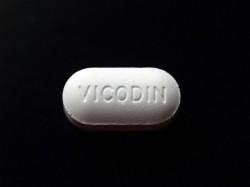Is Methadone Maintenance Treatment Effective at Treating Vicodin Addiction
Vicodin’s pain relieving properties serve a wide variety of purposes, from treating tooth pain to back injuries. Like most every powerful opiate drug, Vicodin is only intended for short-term use. When used for extended periods of time or used for non-medical purposes, abuse and addiction are possible.
Methadone was developed over 50 years ago as a treatment for opiate addiction. Methadone maintenance treatment combines methadone as a replacement therapy with ongoing psychosocial treatment supports. Through methadone maintenance treatment, addicts who otherwise wouldn’t have a chance of breaking Vicodin addiction can take an active role in the recovery process.
Vicodin Addictions
Vicodin consists of two different analgesic agents: hydrocodone and acetaminophen. In effect, adding acetaminophen to hydrocodone intensifies hydrocodone’s opiate effects. Acetaminophen also carries anti-inflammatory properties that make Vicodin an effective treatment for conditions involving inflammation and pain.
Vicodin addiction results from the drug’s ability to bind to brain cell receptors and pain cell receptors situated throughout the body’s central nervous system. When abused, brain and central nervous system functions come to depend on Vicodin effects. This dependency becomes progressively worse the longer a person uses the drug. Over time, the brain and central nervous system lose their ability to function normally without the drug’s effects.
Methadone Effects

Vicodin is an addictive prescription painkiller. Vicodin addiction can be helped with methadone.
For people addicted to Vicodin, drug cravings and withdrawal effects become the two main barriers to breaking the addiction. Considering Vicodin’s enhanced pain relieving properties, a person can become physically dependent to the drug within a week’s time, according to Semel Institute.
Methadone, a long-standing opiate addiction treatment, greatly reduces drug cravings while lessening withdrawal symptom effects. As a synthetic opiate substance, the brain and central nervous interact with methadone in much the same way as any other opiate drug. Methadone and other opiate drugs differ in that methadone doesn’t produce the addictive “high” effects associated with drug abuse.
Methadone Maintenance Treatment
Vicodin addiction encompasses both a physical and psychological dependency on the drug. Only treating the physical addiction leaves recovering addicts highly susceptible to relapse. Methadone maintenance treatment addresses both aspects of addiction.
Daily methadone doses enable addicts to wean off the physical effects of the drug. Methadone maintenance programs also require participants to engage in psychotherapy, group therapy and support group work.
As methadone alleviates withdrawal and drug-craving effects, recovering addicts can start the process of rebuilding their lives while remaining actively engaged in the treatment process. Resuming employment, maintaining family obligations and developing friendships are all made possible throughout the duration of methadone maintenance treatment.
Relapse Risks
Opiate addictions cause widespread deterioration of brain and central nervous system processes. For this reason, stopping “cold turkey” places addicts at even greater risk of relapse and potential overdose.
Methadone maintenance treatment takes a two-pronged approach to opiate addiction treatment by helping addicts “wean off” Vicodin’s effects while providing the type of guidance and support addicts need to regain control of their everyday lives.